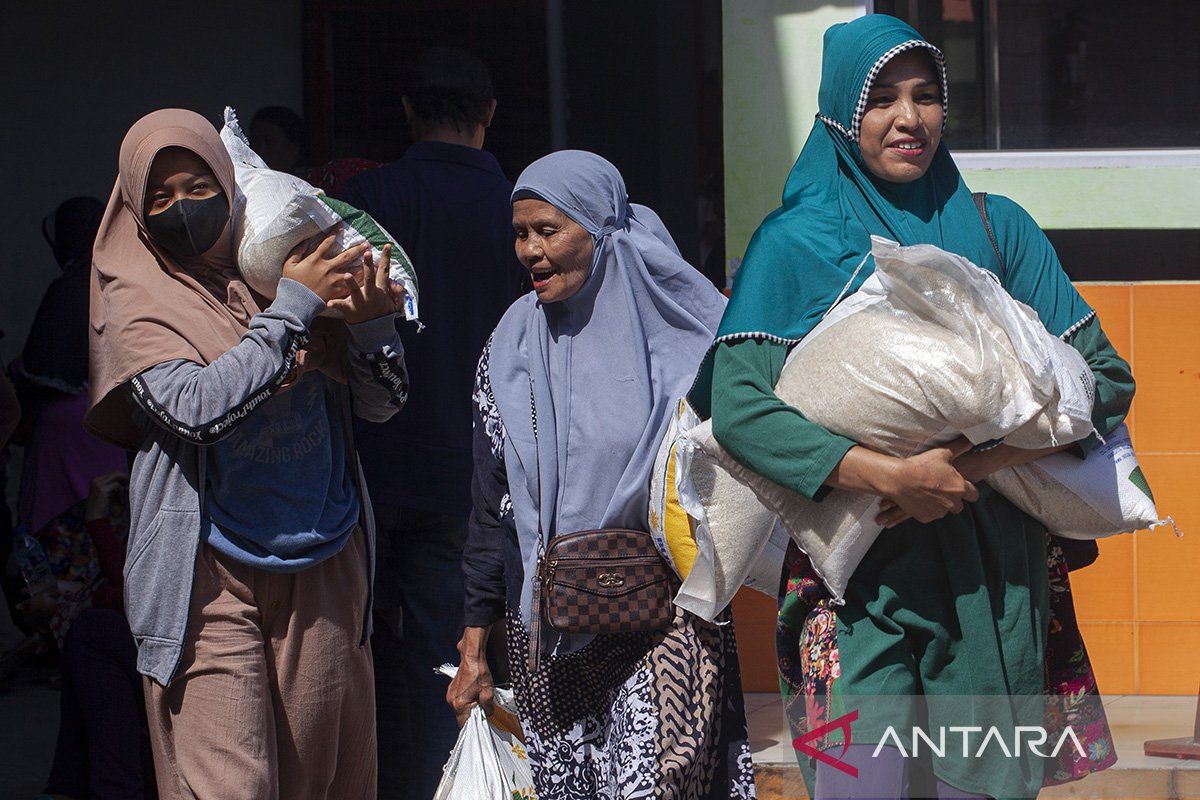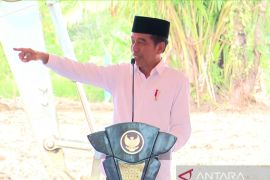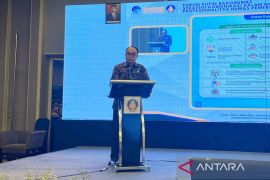"No, it's not. Instead, social assistance is like a market operation, so by providing social assistance, the demand from the public will decrease. If demand decreases, while supply remains the same, prices can go down, in theory. However, it hasn't happened yet," Jokowi noted during his working visit to a vocational school in Purwakarta, West Java.
In order to reduce the price of rice, he remarked that the government has conducted market operations and distributed rice to 21.3 million beneficiaries with each of them receives 10 kilograms of rice per month.
Jokowi said that rice prices had been relatively high recently. Meanwhile, the prices of chili commodities experienced seasonal spikes.
However, the prices of shallots, garlic, and eggs are still stable, he pointed out.
He affirmed that the government is currently working to reduce the price of rice, which is the staple food of Indonesians.
"Until now, it has not been able to decrease (the price) significantly but at least it has not increased," Jokowi highlighted.
The government has also extended the distribution period for rice social assistance until June 2024 from November 2023, Trade Minister Zulkifli Hasan had stated on November 6.
The government's rice reserve stock, managed by state-run logistics company Bulog, reached 1,442,945 tons as of November 2, 2023, with the realization of food aid distribution reaching 94.95 percent in September, 94.89 percent in October, and 18.45 percent in November.
According to Coordinating Minister for Economic Affairs, Airlangga Hartarto, Bulog is ready to increase the availability of rice reserves to support the distribution of rice social assistance.
Related news: Regions should control inflation as chili, rice prices rise: Minister
Related news: Govt to continue rice aid disbursal until June 2024
Translator: Rangga Pandu A J, Resinta Sulistiyandari
Editor: Anton Santoso
Copyright © ANTARA 2023












